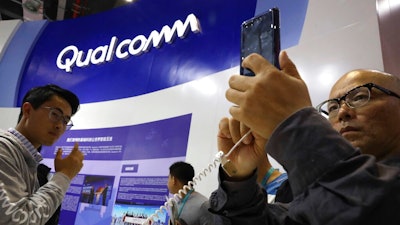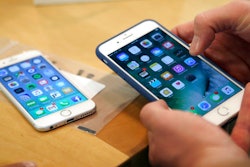
Qualcomm's stock is tumbling before the opening bell after a federal judge ruled that the company unlawfully stifled cellphone chip market competition and charged excessive licensing fees.
U.S. District Judge Lucy Koh in San Jose, California found Tuesday that Qualcomm violated antitrust law, charging high royalties and squeezing out rivals, according to a Wall Street Journal report.
Koh ordered Qualcomm to negotiate or renegotiate licensing deals with customers. The San Diego company must also license its patents to rival chip makers at fair prices and can't sign exclusive supply agreements with smartphone makers like Apple that block competitors from access to that market.
Qualcomm Inc. must submit to monitoring for the next seven years to make sure it follows the order.
Qualcomm said in a statement Wednesday that it will seek an immediate stay and appeal of the ruling.
"We strongly disagree with the judge's conclusions, her interpretation of the facts and her application of the law," Don Rosenberg, executive vice president and general counsel of Qualcomm, said in a statement.
Last month Apple and Qualcomm settled a bitter financial dispute centered on some of the technology that enables iPhones to connect to the internet. The deal requires Apple to pay Qualcomm an undisclosed amount. It also includes a six-year licensing agreement that likely involves recurring payments to the mobile chip maker.
Apple had already lost an earlier battle with Qualcomm in March when a federal court jury in San Diego decided the iPhone maker owed Qualcomm $31 million for infringing on three of its patents.
Shares of Qualcomm are down 12% in premarket trading.






















